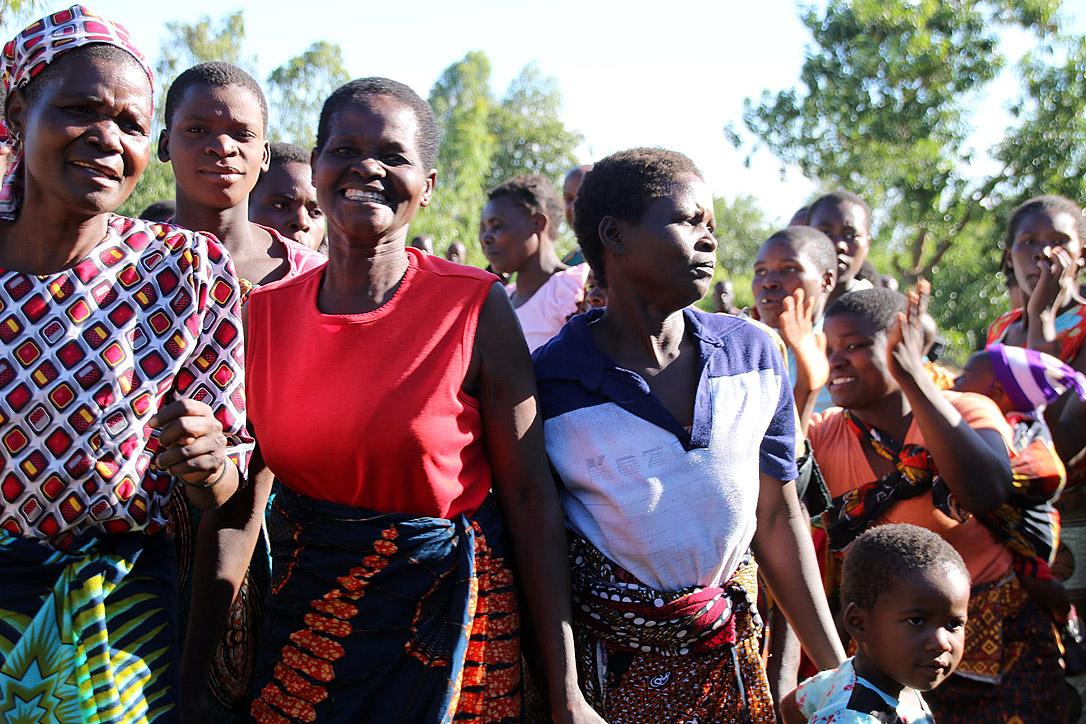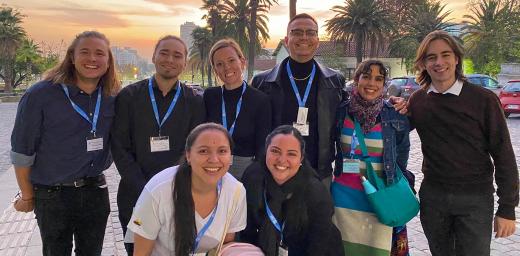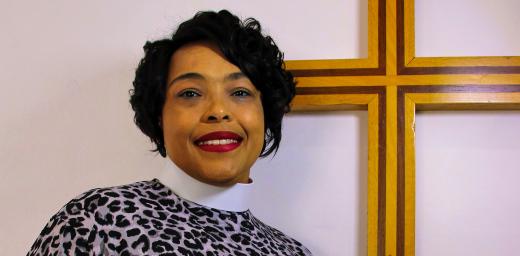Children's rights key to fighting injustice and poverty

Women and children are often the most affected by poverty. The ELCM Matsimbe project equips them with skills to earn income from small-scale trade, such as poultry keeping. Photo: Allison Westerhoff
Eliminate poverty and violence through theology
(LWI) – The rights of children must be at the fore of efforts to address poverty and economic empowerment. The General Secretary of the Evangelical Lutheran Church in Malawi (ELCM), Mabel Madinga, made these remarks at a regional workshop looking at how theology, gender and children’s rights relate to poverty and other injustices.
“When a father abandons his child’s mother without being held responsible for it, this puts the child at a huge disadvantage. This is how gender and children’s rights intersect,” Madinga told 40 diaconal workers and communicators from The Lutheran World Federation (LWF) member churches in Africa at the 16-20 May training workshop.
The Malawian church is addressing children’s rights by empowering rural, needy communities with ways of making a living and of skills development. Madinga explained how an initiative to alleviate poverty in the disadvantaged rural region of Matsimbe has transformed children’s lives.
“I have seen the faces of those children and only God knows where they would have been without the help of this project,” she said.
The Matsimbe economic empowerment project kicked off in 2014 when a borehole was installed, supplying water to more than 1,000 households across 13 villages. To date, food security, health and hygiene have improved,, as has primary school enrolment, especially for girls. Newly established community groups that provide space to discuss common issues have led to a reduction in domestic violence.
Madinga said the ELCM conducts skills training for young school dropouts who prefer to learn a trade instead of going back to school. The hope is that in the long term, the church will help reduce unemployment and create sustainable alternatives for economic empowerment. Huge sections of Malawi’s rural population depend on subsistence farming, which provides few or unreliable returns.
“Skills development will be the way that we can take poverty head on,” Madinga added.
Gender and masculinity
“We cannot talk about gender and theology today without talking about issues of masculinity,” Dr Lilian Siwila of the University of Kwa-Zulu Natal, South Africa, told delegates.
She described masculinity as “a fluid social construct of what makes a man a ‘real man’ and can be manifested positively or negatively.”
I have seen the faces of those children and only God knows where they would have been without the help of this project.
Siwila explained that both men and women can reinforce negative perceptions about masculinity because of cultural perceptions about how a man should be or behave. The fear of loss of power sometimes results in violence that targets women. One of the tasks of churches, she said, is to encourage men and women to reform their perception of gender norms.
Church leaders can affirm positive masculinity in many ways. “Men in leadership could advocate for women to be empowered and elected into leadership positions on church councils and in roles of leadership,” said Rev. Ernest Kadiva, Evangelical Church in Tanzania.
LWF area secretary for Africa, Rev. Dr Elieshi Mungure emphasized the church’s responsibility to change traditions and cultures that subjugate women and children. “In order to deal with issues of gender and children’s rights in the African church and society, it is imperative to look into how society reads and interprets scriptures into people’s daily lives.”
Communication
Mungure welcomed the presence of communicators from the African Lutheran Information and Communication Network (ALCINET), saying they play an important role of helping churches access and share resources that help mitigate injustice, such as poverty and violence against women.
“The ALCINET-led Africa Lutheran Communion website, which was launched earlier this week, will help member churches share how they live out the gospel in their respective contexts,” she added.
A contribution by ALCINET member Allison Westerhoff.





